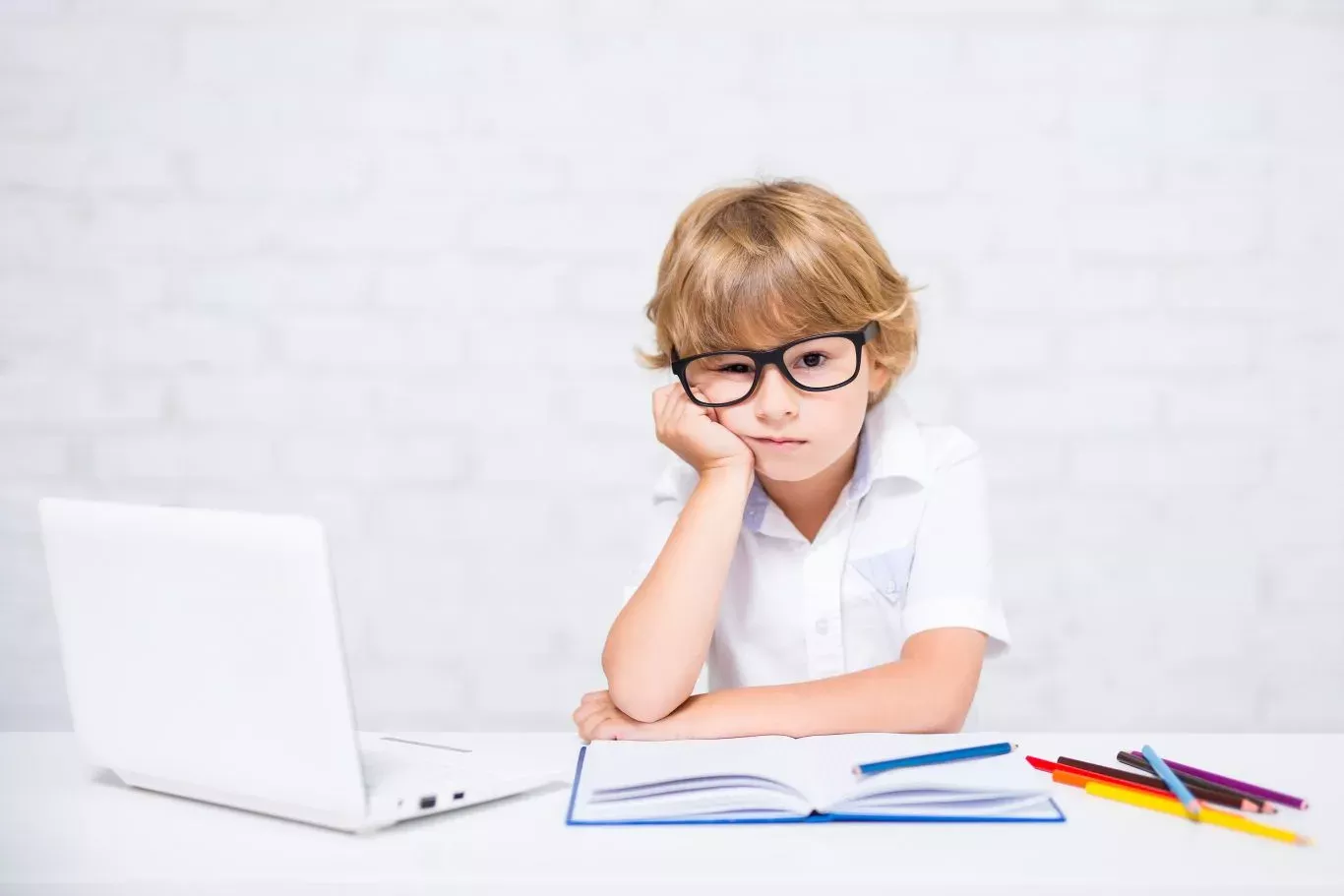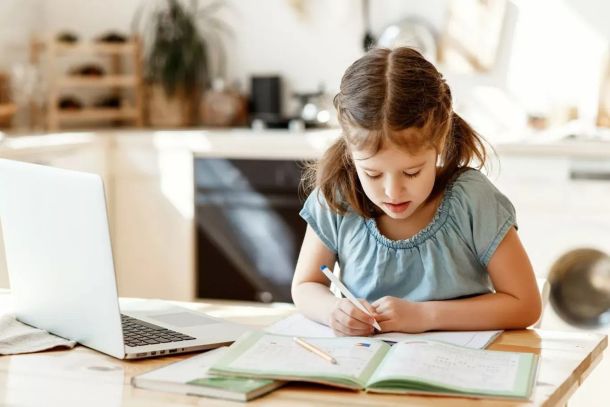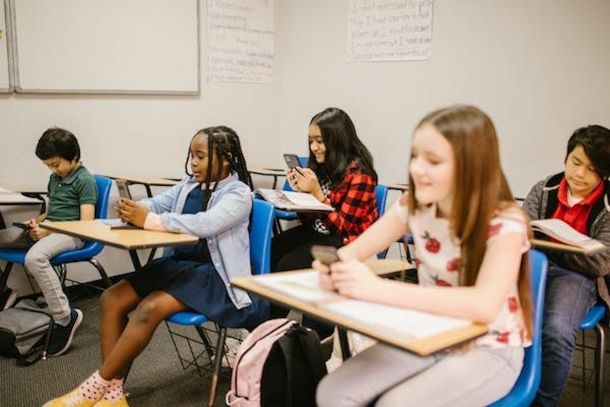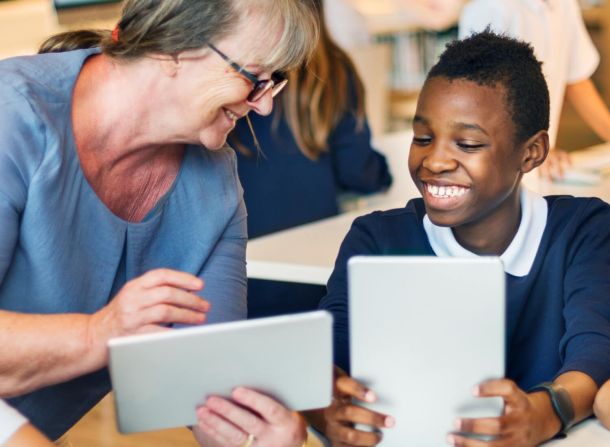
Learning loss: the impact of Covid-19 on education
Learning loss will be reflected in the income of the next generation of employees and refers to any specific or general loss of knowledge and skills.
Learning loss refers to any specific or general loss of knowledge and skills or to reversals in academic progress, most commonly due to extended gaps or discontinuities in a student’s education.
The health restrictions and isolation we experienced during the two years of the pandemic, as a means of limiting the spread of Covid-19, sidelined education around the world. They have overlooked the price that students are only now beginning to pay. The loss of subjects accumulated while schools have been closed will follow students into the labor market and both they and the countries they belong to will be affected by the consequences of these losses in the economic sector.
The State of the Global Education Crisis: a Path to Recovery report - produced by UNESCO, UNICEF, and the World Bank in 2021, calls the crisis caused by the COVID-19 pandemic in education the worst in history. Disruptions and subject losses have seriously affected more than 1.6 billion students. The magnitude of the shock is not yet fully understood, but the emerging evidence is worrying. Analysis shows substantial learning gaps in maths and reading. While the gaps occur in both high-income and middle- and low-income countries, they disproportionately affect the most marginalized pupils.
The COVID-19 crisis brought education systems across the world to a halt,” said Jaime Saavedra, World Bank Global Director for Education.
A key component of economic development policies is an investment in human capital. More capable people are more productive and more adaptable to technological change. The impact of the pandemic on education will have a negative impact on the future of current generations of students. These consequences will have knock-on effects on the global economy that we will see concretely in the more distant future. The closure of schools imposed by the pandemic is resulting in a loss of subjects that will not be recovered even if schools return to the performance standards of before this troubling period. If left unaddressed, these losses will have dramatic and long-lasting effects, both on the pupils concerned and on each state. While the specific losses are not known, studies estimate that the lifetime earnings of students in grades 1-12 will decline by about 3%.
“The COVID-19 pandemic shut down schools across the world, disrupting education for 1.6 billion students at its peak, and exacerbated the gender divide. In some countries, we’re seeing greater learning losses among girls and an increase in their risk of facing child labor, gender-based violence, early marriage, and pregnancy. To stem the scars on this generation, we must reopen schools and keep them open, target outreach to return learners to school, and accelerate learning recovery," said UNICEF Director of Education Robert Jenkins.
The economic losses will be felt most by pupils from disadvantaged backgrounds. The data show that pupils whose families do not have the resources to support offline learning will face greater subject losses than their peers from more advantaged backgrounds. Because they have not been able to meet the conditions necessary to access school online - laptop or computer, internet access, guidance from teachers - children from disadvantaged backgrounds have been deprived of the education they need to overcome their condition. Left unaddressed, opportunity gaps will lead to occupational gaps. For children from disadvantaged backgrounds, schools are more than a learning space. For them, they are a safe place where they receive food, counseling and protection services and play with their friends. Teachers can be the trusted people for children to turn to when they need help.
The 2021 report brings even bleaker data and predictions. The global learning crisis has taken hold: this generation of learners now stands to lose $17 trillion of their lifetime earnings in present value terms as a result of school closures, or the equivalent of 14% of the world's current GDP, far more than the $10 trillion estimated in 2020. In low- and middle-income countries, the share of children living in educational poverty - which already exceeded 50 percent before the pandemic - will rise sharply, potentially reaching as high as 70 percent, given prolonged school closures and variations in the quality and effectiveness of distance learning.
For many students, online schooling has been admirable, but sorely lacking
Online schooling has gradually evolved with the best practices that teachers have discovered along the way, but students have faced problems such as learning difficulties, isolation or lack of resources. In addition to their educational progress, the closure of schools has also had negative consequences for children's emotional health and their online safety.
It is the teachers who have first-hand information about how students have adapted to online schooling. From unmarked homework to disastrous exam results, teachers are witnessing disinterest and subject loss, the economic consequences of which will follow students throughout their lives.
What lessons have we learned from the school that took us all - teachers, students, parents - out of our comfort zone?
Online learning has completely changed the way teachers evaluate their teaching skills. It all came down, in the pandemic years, to the adaptability of teachers. They have had to change their teaching overnight, adopt innovative ways of staying connected with their students and work much harder to cover the curriculum.
Identifying positive experiences helps not only in planning for the next school year, but also in how we relate to a situation: we are already familiar with online schooling, and if we focus more on the positives, we will realize that every situation comes with potential for growth and learning.
The advantages of technology in teaching are unequivocal. But in order to achieve the benefits, teaching with digital tools needs to meet certain conditions related to infrastructure - devices and good internet connection, but also to mindset - a way of thinking that encourages innovation, the ability to change and the advantages of the century we live in.
Increasing teachers' digital skills and personalized teaching can narrow the learning loss
Now is the time to demonstrate that we have truly owned the lessons taught by the pandemic. The only way the economic downturn can be mitigated is through accelerated - but necessary - evolution in schools. Research in this area suggests that adapting teachers' digital capabilities to new teaching demands could boost schools' performance. In addition, because the disruptions schools have experienced will deepen the gaps in pupils' knowledge levels, the shift to personalized teaching would benefit pupils more.
To build more resilient education systems for the long-term, and yo avoid learning loss countries should consider:
- Investing in the enabling environment to unlock the potential of digital learning opportunities for all students.
- Reinforcing the role of parents, families, and communities in children’s learning.
- Ensuring teachers have support and access to high-quality professional development opportunities.
- Increasing the share of education in the national budget allocation of stimulus packages.
The measures that need to be implemented to reduce the negative impact of the loss of maths are threefold: social, administrative, and health. One of the urgent measures recommended at the government level is to support disadvantaged families so that, with the necessary digital devices and an internet connection, all children can participate equally in the online education process.
Another measure is planning innovative interventions to reorganize schools for the next school year. This includes training teachers to support online lessons and ensuring personalized materials and learning support for pupils in the most difficult situations.
From a health point of view, regardless of locality and local authority resources, it will be mandatory for schools to ensure health safety and monitoring of health and social distancing rules so that all children learn in decent and safe conditions in their schools. These measures can be translated concretely into the repair and renovation of premises, sanitary facilities inside schools, running water, sanitation, transport, leisure and sports facilities, etc.
The report by UNESCO, UNICEF and the World Bank is a wake-up call to the impact of the learning gap caused by the pandemic. From this analysis comes the call to use this crisis as an opportunity to reinvent education - to make it more resilient, more equitable and more effective in terms of learning for all. We must seize this opportunity. Now is the time to act, to prevent this generation of learners from suffering permanent losses in learning and future productivity, and to protect their ability to participate fully in society.
You can read more here and here.

Kinderpedia
The complete communication and management solution for schools and childcare centres.
Simplifies teachers' work and brings parents closer to their children's school progress.
Recommended articles
Want to improve your center quality? Kinderpedia is here to help! Not only do we provide thousands of informational content pieces like blog posts, podcasts, webinars and more, we are also makers of the #1 Rated and Reviewed Childcare Software.







